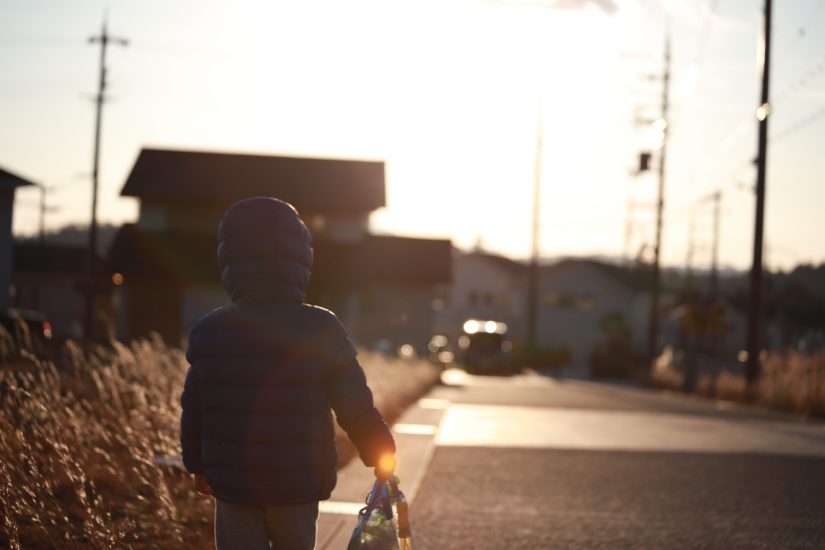A guide for the perplexed
Japan, a nation of green mountains, clean flowing streams…and sound. When I first came to this country, I was shocked at the huge variety of sound around me. Announcements, jingles, alarms, notifications—noise everywhere. After a while, you begin to get used to it and tune it out like all the locals do, but there are some particular sounds that bear explanation because they aren’t self-evident. Here’s a quick run-down of a few of them, and what they signify.
5 (or 4, or 6) O’clock, time to go home!
The time may differ based on location, but wherever you happen to be you’ll likely hear music playing over the neighborhood PA system in the evening time. In my area, it’s 5 o’clock in autumn/winter and 6 in spring/summer. Why? Because this is the time children should be going home from the parks or their friend’s houses to have dinner, study, and generally be good little tikes. The official explanation is that this music is to test the PA systems, which are used for emergency broadcasts as well, but the choice of time (and song, and length) are also intended to help regulate neighborhood children.
The songs themselves differ by area, as well. My neighborhood uses Home on the Range (Japanese title 峠の我が家 Touge no Waga Ie), which is a weird piece of nostalgia for this Kansas boy. The town I used to live in used a section from Dvorak’s New World Symphony Second Movement, which has also become a popular Japanese folk song called 家路 Ieji, or “The Road Home”.
What’s your neighborhood song?
Explosive Wake-up
One of life’s great annoyances in suburban Japan is that life begins early, even on weekends. If you live in a residential neighborhood near schools or temples, you are sure to be woken up by what sounds almost like gunfire at least once a year. What on earth could be going on?
The sound, a short burst of around five bangs, is a type of firework called 昼花火 hiru hanabi (noon fireworks) or 音花火 otohanabi (sound fireworks) used to announce the opening of an event. They’re used at school sports days (運動会 undoukai), temple festivals, flea markets, and other kinds of big outdoor events. The sad thing is, they could go off as early as 7 in the morning—meaning your Saturday sleep-in could be canceled.
Not the Ice Cream Truck
The evening streets of residential Japan tend to be fairly quiet. Post-work, most people are inside enjoying a beer and watching TV. But in some neighborhoods, the evening quiet is broken by the mysterious sound of an unknown music, almost like something out of an Arabian Nights film.
This is the song of ramen, apparently called チャルメラ charumera. Small trucks with a mini-kitchen in the back drive slowly through the neighborhood around a (late) dinnertime calling customers with this siren song. Regulars will run out with their own bowls to get a fill up of salty, brothy goodness. If you get the chance, go try some. It’s not only a good meal, but it’s a nice opportunity to interact with the neighborhood!
Again, not the ice cream truck
There is another truck that you might hear, though it is much less common than the Ramen truck these days, and it usually only appears early in the day.
This one plays only two long notes, low then high, but it is also selling something: tofu. Local homemakers will run out to get their daily supply of tofu when this truck comes creeping past in the morning/early afternoon. Since tofu is best eaten fresh, and these trucks only appear in areas near makers, and are disappearing because of the ubiquity of local grocery stores selling cheap, high-quality tofu.
These are the sounds that most confounded me when I first came to Japan, so I hope this is a bit of help. Are there any other regular noises that seem significant, but escape your understanding? Finding out is a good way to explore local culture, and maybe meet some new people!








